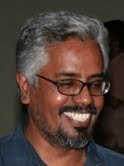on videos
Videos - Against the Pace of Television and Glitter of Cinema
As a medium, videos exhibit an immediacy, vigour and spontaneity that go beyond both television and cinema. While television frets and fumes, trying to keep pace with the world, these video documentaries pause and pose disturbing questions, pry into the interstices, contemplate upon the uncanny and the 'ordinary' in our life and polity. If cinema is all about spectacles and melodrama, these video features do not conceive or address a passively consuming mass audience, but consider spectators as fellow-travellers in this unpredictable journey of thrilling experiences and troubling thoughts. In other words, these works look at things from below, and are astounding in their diversity.
What distinguishes them is the keen sense of history and location. They are firmly rooted in their space and time, and excavate angles, viewpoints and layers of experience that we often miss in this supposedly 'media-saturated' world. Lalit Vachani's The Salt Stories revisit Gandhiji's legendary Salt March to map the legacies and memories it has left behind in Narendra Modi's Gujarat today. This journey gradually turns into one through history, even while revealing how fragile and deceptive stuff like memories and 'History' are. Here video becomes yet another tool to fight forgetfulness and to reclaim history and memory. Likewise R V Ramani's Nee Yaar? (Who are you?), a film about Sundararamaswamy, the eminent Tamil writer, gradually unravels the conflicting facets of his life – domestic, literary, social and political. Here the video is as unobtrusive as a friend, moving through reminiscences and reflections of his contemporaries and relatives like fish in water. One could describe Sourav Sarangi's Bilal as a searing attempt at 'video neorealism'; this film plays an unflinchingly witness to the life of Bilal the adolescent son of blind parents who are struggling to make a living at the fringes of a metropolitan city like Kolkata. Here, the video camera is a witness to the grind of the everyday, with all its frustrations, violence, and also hopes and dreams.
Ranjan Palit's Forever Young is an enchanting human document about Lou Majow, a rock singer from Shillong, and a great admirer of Bob Dylan. Tracking his life and following him in his nomadic adventures, the film brings out the enigmatic power of music that transcends all barriers. . Anirban Dutta's 'In for motion' is an interesting look at the IT industry in India, its lineage, trajectories of development and the dilemmas it is mired in now, with the personal narrative of the director woven into this 'historical-analytical' narrative. M R Rajan's Cinemayude Kalpadukal (Footsteps of Cinema) looks back at a vibrant period in the history of Malayalam cinema, through the experiences of Sobhana Parameswaran Nair, a producer. For this, it uses film songs along with first person narratives and evocative visuals. Ramachandran's Saamam traces the legacy of an enigmatic singer like MD Ramanathan, where his biography meshes with comments and reflections.
Similarly, in the fiction category also, the videos have a different take on various themes and formats. Most of them do away with 'cinematic' conventions and search for narrative structures that challenge the viewer. A film like Many Stories of Love and Hate (Shyamal Karmakar) weaves a very complex narrative about human relationships, in a very contemplative manner, composing his images and monologues poignantly to create drama. Sherry's Last Leaf is a very daring attempt portraying the love between two nuns that swings between the divine and the carnal, the spiritual and the physical. Murali Manohar's Karna Motcham (a student film) takes a very simple and mundane situation, but succeeds in finely juxtaposing the traditional and the contemporary. Tony Sukumar's When This Man Dies is a dark satire on middle class urban poverty and aspirations, while Shyam Arjun Salunke The passion of cricket takes a hilarious look at how a collective frenzy like cricket sucks us into its vortex turning everyone into a player. If Vishnu Shyamaprasad's A Writer's Affair tries to probe into the very process of script writing, Sreejith Remanan's Yakusha Co Ltd sketches the despair of an actor at the fag end of his career.
The strength of these videos is the easy and effortless use of the camera, which is employed like a pen (a la Astruc's camera stylo), innovatively and freely mixing monologues, texts, multiple screens, chapterisation and commentary. Unlike the documentaries we are used to in its Films Division and Television avatars, these are intensely introspective, and never pose the author as invisible or omnipotent, instead they are very much present and active in the unfolding narrative, hence the prevalence of intimate autobiographical voice-overs in many films.
Ironically, despite the huge audience for film festivals in the state, films from Malayalam seem to be working in isolation from the rest of the country. Most of them seem to be obsessed with the big screen format and tend to use video as its apologetic substitute and not as a medium in itself. This gets reflected in treatment styles also, which is more often very stilted and self conscious, instead of being self-reflexive. One hopes that festivals like this will inspire them to break conventions about the technologies of narration and the fear of bringing oneself into one's work.
(written for SIGNS 2009 Video Festival Book)


1 Comments:
Really interesting and informative article. thanks for sharing.I appreciate your work..
best web hosting
Post a Comment
Subscribe to Post Comments [Atom]
<< Home